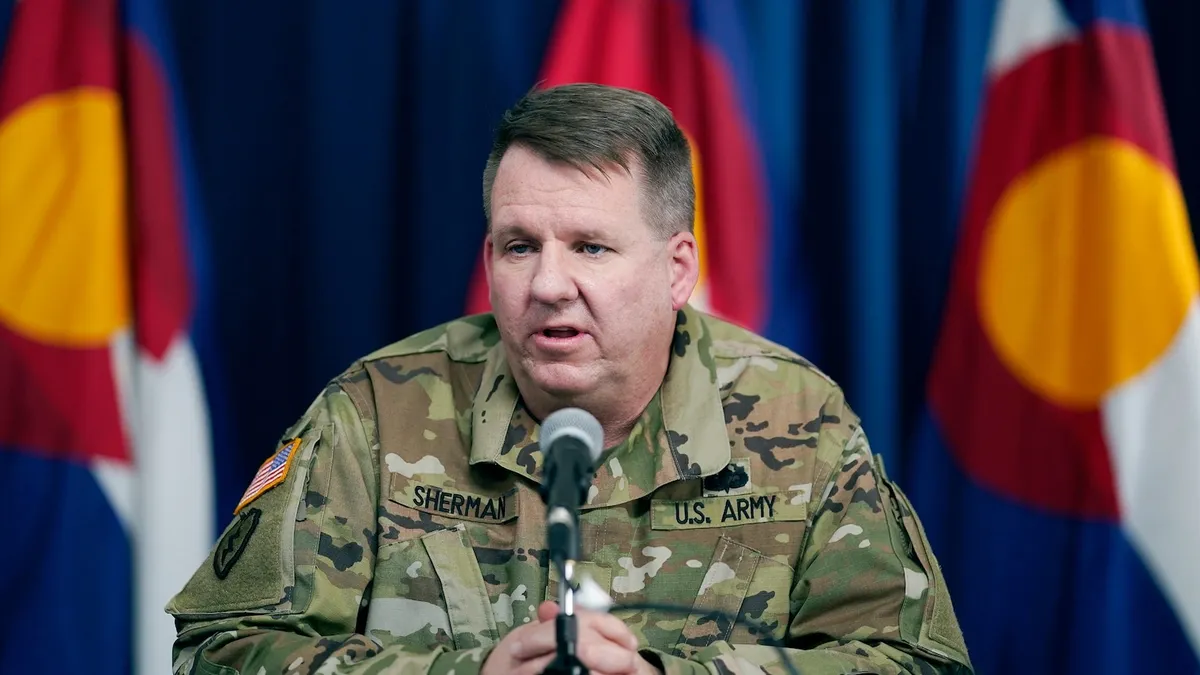
The commander overseeing military operations in Los Angeles provided critical updates on Wednesday regarding the authority of troops deployed to the city amid ongoing protests. Major General Scott Sherman clarified that while these troops can temporarily detain individuals, they are not authorized to make arrests. This distinction is crucial as the military's role in the city unfolds, particularly in the context of heightened tensions following recent Immigration and Customs Enforcement (ICE) operations.
According to Maj. Gen. Scott Sherman, who leads Task Force 51—a deployable command post for both routine and contingency operations—the soldiers on federal orders are strictly prohibited from conducting law enforcement activities such as arrests or search and seizure. Instead, their primary function is to ensure the protection of federal personnel as they carry out their operations in Los Angeles.
The deployment of 4,000 National Guard soldiers and 700 Marines marks a significant escalation in the federal response to the protests. Currently, 2,000 National Guard members are actively engaged in operations throughout the city, with an additional 2,000 troops scheduled to complete their mobilization and start training by Thursday afternoon, as noted by Sherman.
The 700 Marines, deployed from Twentynine Palms, California, are undergoing specialized training at Naval Weapons Station Seal Beach, located approximately 30 miles south of downtown Los Angeles. Maj. Gen. Sherman described this two-day training as extensive, focusing primarily on crowd control tactics that fall outside their usual responsibilities. He emphasized that while the Marines are equipped to use weapons for personal protection, their main focus will be on managing large crowds and safeguarding federal facilities.
As part of the ongoing operations, around 1,000 Guard members have already played a role in protecting federal buildings and personnel. Sherman reiterated that although troops have the ability to temporarily detain individuals, actual arrests must be conducted by law enforcement officers.
The military deployment in Los Angeles is facing legal scrutiny, with California Attorney General Rob Bonta and Governor Gavin Newsom filing a lawsuit challenging the federal government's authority to deploy troops without state coordination. The lawsuit asserts that this deployment infringes upon state sovereignty and violates the 10th Amendment of the U.S. Constitution.
In response to the legal challenges, President Donald Trump criticized Governor Newsom for allegedly failing to provide timely protection for ICE officers, claiming they were attacked by a "mob of agitators, troublemakers, and/or insurrectionists." When questioned about the ongoing legal situation, Maj. Gen. Sherman stated, "That's beyond my scope. I'm here to run operations," emphasizing his focus on the military’s mission.
Maj. Gen. Sherman stressed that the military's mission in Los Angeles is solely concentrated on protecting federal agencies, their personnel, and facilities in areas where demonstrations have occurred. "We are strictly there to help them do their job and to protect them," he confirmed. As the situation continues to evolve, clarity regarding the roles and limitations of deployed troops will be essential in maintaining order and addressing the protests effectively.